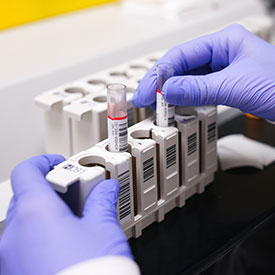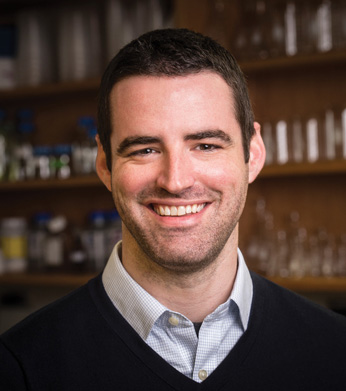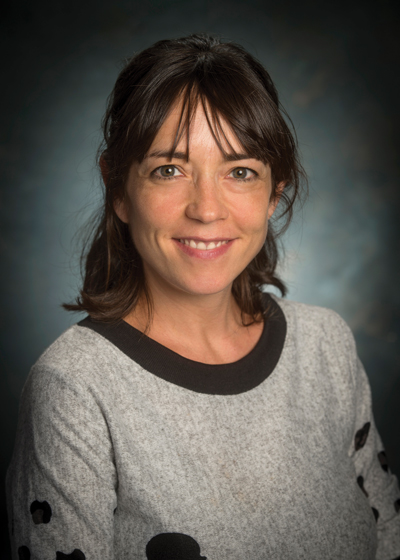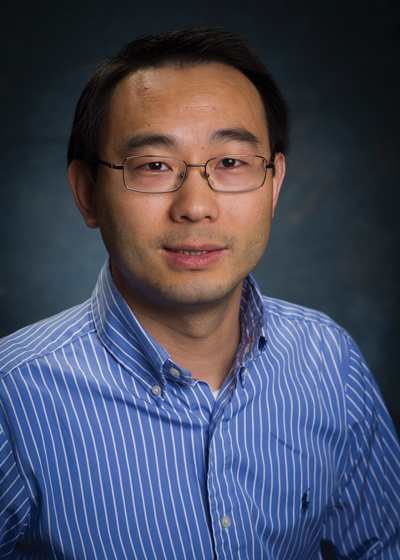 The James A. Pittman Jr., M.D., Scholars Program provides welcome funding for early-career scientists.Recruitment is only one part of building a top-tier academic research program—you must also retain the innovative scientists who are already part of your team. The James A. Pittman Jr., M.D., Scholars program was launched in 2015 to recognize the contributions of junior faculty who are in the early stages of their careers (eligible faculty must be assistant professors who have held that rank for fewer than five years). Pittman Scholars are nominated by their department chairs and receive funding to support their research or scholarly pursuits. The aim of the program is to nurture tomorrow’s best physicians and scientists, and to reward their efforts with resources that support their goals.
The James A. Pittman Jr., M.D., Scholars Program provides welcome funding for early-career scientists.Recruitment is only one part of building a top-tier academic research program—you must also retain the innovative scientists who are already part of your team. The James A. Pittman Jr., M.D., Scholars program was launched in 2015 to recognize the contributions of junior faculty who are in the early stages of their careers (eligible faculty must be assistant professors who have held that rank for fewer than five years). Pittman Scholars are nominated by their department chairs and receive funding to support their research or scholarly pursuits. The aim of the program is to nurture tomorrow’s best physicians and scientists, and to reward their efforts with resources that support their goals.
Named for the late James A. Pittman Jr., M.D., dean of the School of Medicine from 1973 to 1992, Pittman Scholars are chosen based on their research achievements and their potential for continued discovery in the basic or clinical sciences. Basic science, in particular, has gotten a boost from the program—eight of the 10 Pittman Scholars named so far are engaged in basic science research.
 Jeremy Day“Receiving this recognition as an early career investigator at UAB has been both inspiring and motivating,” says 2016 Pittman Scholar Jeremy J. Day, Ph.D., assistant professor in the Department of Neurobiology. “My lab is using these funds to further our research into a new epigenetic regulatory mechanism that we have recently characterized. Specifically, the award has enabled us to perform cutting-edge, whole-genome sequencing studies to define the precise way in which this mechanism controls expression of genetic material in the nervous system. These experiments will allow unprecedented insight into this phenomenon and will bring us closer to our goal of understanding how epigenetic mechanisms contribute to brain diseases.”
Jeremy Day“Receiving this recognition as an early career investigator at UAB has been both inspiring and motivating,” says 2016 Pittman Scholar Jeremy J. Day, Ph.D., assistant professor in the Department of Neurobiology. “My lab is using these funds to further our research into a new epigenetic regulatory mechanism that we have recently characterized. Specifically, the award has enabled us to perform cutting-edge, whole-genome sequencing studies to define the precise way in which this mechanism controls expression of genetic material in the nervous system. These experiments will allow unprecedented insight into this phenomenon and will bring us closer to our goal of understanding how epigenetic mechanisms contribute to brain diseases.” Glenn Rowe
Glenn Rowe
 Beatriz Leon-Ruiz“In my opinion, this program definitely helps young scientists like me launch our careers,” says Beatriz León-Ruiz, Ph.D., a 2015 Pittman Scholar and assistant professor in the Department of Microbiology. “The award has helped me to start my own lab and has provided support for my research while I work to get my own NIH funding. Being a young scientist these days means being stressed about funding. It is very helpful to get some financial support to gather preliminary data for proposed research.” León-Ruiz’s research focuses on defining how T-helper immune cell responses are regulated.
Beatriz Leon-Ruiz“In my opinion, this program definitely helps young scientists like me launch our careers,” says Beatriz León-Ruiz, Ph.D., a 2015 Pittman Scholar and assistant professor in the Department of Microbiology. “The award has helped me to start my own lab and has provided support for my research while I work to get my own NIH funding. Being a young scientist these days means being stressed about funding. It is very helpful to get some financial support to gather preliminary data for proposed research.” León-Ruiz’s research focuses on defining how T-helper immune cell responses are regulated.
In addition to Day, other 2016 Pittman Scholars who are focused on basic science research include Glenn C. Rowe, Ph.D., assistant professor in the Division of Cardiovascular Disease, who is exploring alterations in gene expression that result in physiological changes in metabolic disorder; and Lufang Zhou, Ph.D.,  Lufang Zhouassistant professor in the Division of Cardiovascular Disease, who is working to understand the mechanisms underlying the interaction between cardiac metabolic and electrophysical subsystems, with the goal of developing cardiovascular disease therapies. Clinical researchers Amy Willis Amara, M.D., Ph.D., of the Department of Neurology, and Jayme E. Locke, M.D., of the Division of Abdominal Transplantation, round out this year’s Pittman Scholars.
Lufang Zhouassistant professor in the Division of Cardiovascular Disease, who is working to understand the mechanisms underlying the interaction between cardiac metabolic and electrophysical subsystems, with the goal of developing cardiovascular disease therapies. Clinical researchers Amy Willis Amara, M.D., Ph.D., of the Department of Neurology, and Jayme E. Locke, M.D., of the Division of Abdominal Transplantation, round out this year’s Pittman Scholars.
By Jane Longshore